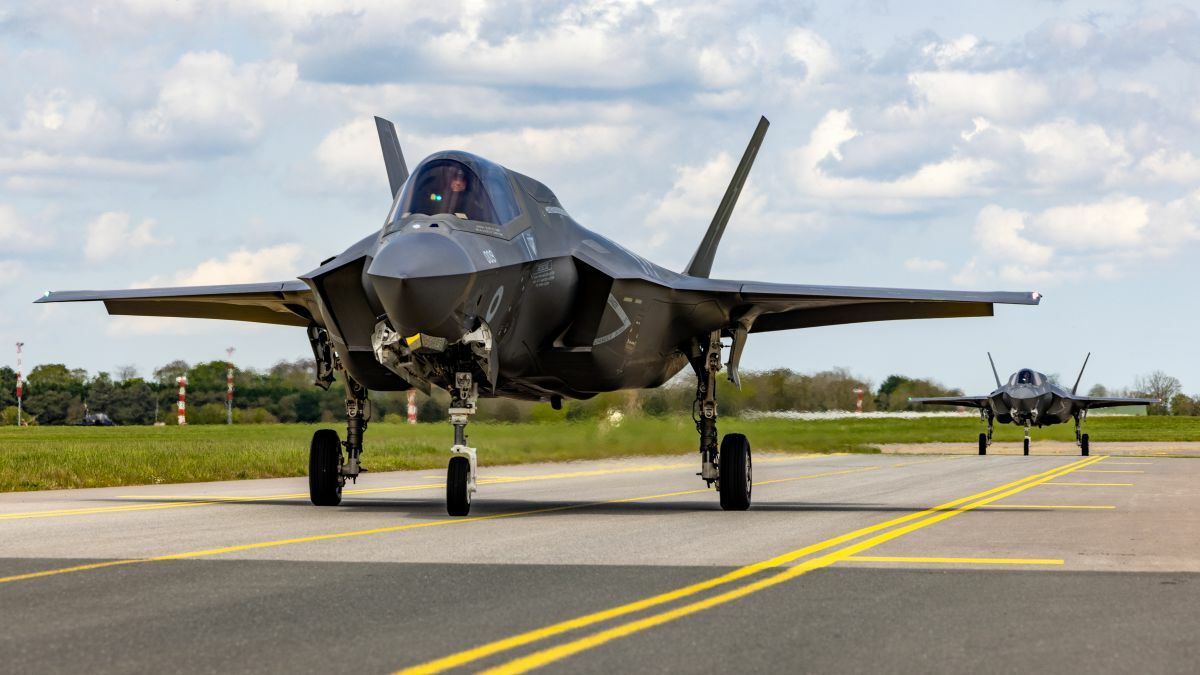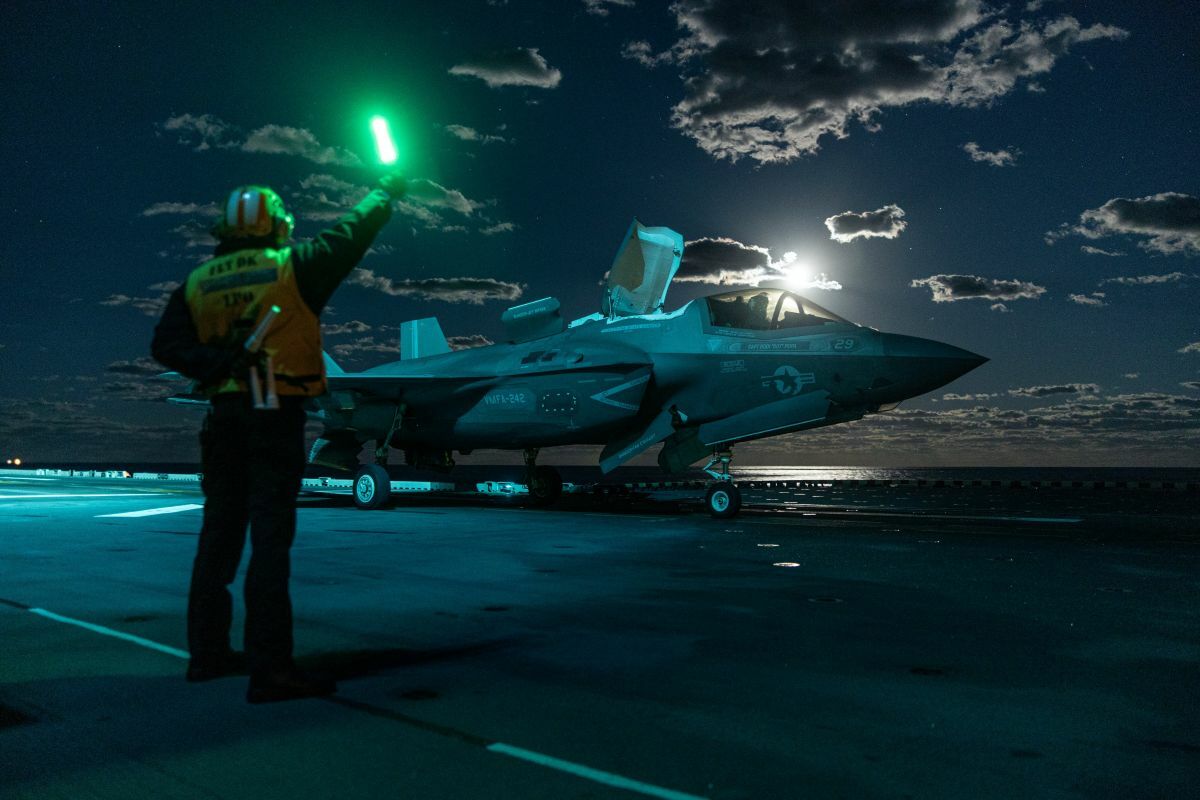
ENGLISH SECTION
04/07/2025 | 05:29
S-400s or not, don’t give Turkey the F-35: Bradley Bowman and Sinan Ciddi in this op-ed say that regardless if Turkey ever gives up its S-400, the risk is too great for the US to send it any F-35s
By Bradley Bowman* και Sinan Ciddi*, Breaking Defense
Thomas Barrack, the US ambassador to Turkey, suggested on Sunday that the impasse with Washington over Ankara’s procurement of the Russian S-400 air and missile defense system could be resolved soon.
That would potentially clear the path for Turkey’s acquisition of the F-35 fighter jet. Barrack’s comments follow a call in March in which Turkish President Recep Tayyip Erdogan asked Donald Trump to permit Turkey’s reentry into the F-35 program.
The Trump administration and members of Congress, however, should think twice before supporting the transfer of F-35s to Turkey for two reasons: one practical and one moral.
- Practically, Turkey’s acquisition of the F-35 could result in America’s enemies acquiring information about the fighter jet, which could be used to kill Americans and our allies in future conflicts. And morally, Turkey has sided with Hamas since the Oct. 7 attacks in Israel — and it’s fair to question whether we want such leadership armed with America’s premier airplane.
The F-35, one of the most advanced fighter aircraft in the world, boasts sophisticated capabilities and sensors that make it central to American security and any future US conflict with China, Russia, Iran, or North Korea. The United States Air Force, Navy, and Marine Corps fly variants of the F-35, and approximately 19 allied nations are currently flying or procuring the F-35.
That is why Erdogan wanted the F-35 and was in the process of procuring it. But after brushing aside offers from the United States to sell the American-made Patriot air and missile defense system to Ankara, Erdogan decided to procure the S-400 air and missile defense system from Russia despite repeated warnings from the United States. Eventually, Washington was left with no choice but to evict Turkey from the F-35 program in 2019.
- The reason Turkey’s possession of both the S-400 and the F-35 is dangerous is that the two systems operated in regular proximity to each other or networked together would enable Moscow to gain valuable intelligence helpful for shooting down F-35s flown by Americans and our allies. Erdogan could either give the information to Moscow, or Russians in Turkey could obtain the information.
If that were to happen, we should not be surprised if Moscow shared sensitive technological details on the F-35 with Beijing, Tehran, and Pyongyang.
If that seems far-fetched, consider that Russia reportedly sent to Iran American-made Javelin and Stinger missiles captured in Ukraine so that Tehran could study the US systems for the purpose of defeating them in combat and/or replicating them for the Iranian military.
Indeed, Putin has received extraordinary support from Beijing, Tehran, and Pyongyang for his war in Ukraine. What better way for Putin to return the favor than providing the other three members of the “axis of aggressors” information helpful for identifying, tracking, and shooting down F-35s?
- That would put Americans, our NATO allies, Japan, South Korea, Israel, and other allies that operate the F-35 at risk. That, in turn, could result in greater pilot casualties and even failed missions.
You would think these risks would make the idea dead on arrival in Washington, but Ankara seems undeterred.
The primary obstacle standing in the way of Erdogan’s effort to acquire the F-35 is section 1245 of the National Defense Authorization Act for Fiscal Year 2020, which prohibits the transfer of F-35s to Turkey unless the secretaries of defense and state certify in writing to key congressional committees that Turkey no longer “possesses” the S-400 air and missile defense system, has committed to not accepting delivery of the system in the future, and has not procured other defense equipment from the Kremlin that would put the F-35’s capabilities at risk.
- Erdogan’s advocates in Washington are likely eager to dupe the Trump administration into believing transferring F-35s is in the American interest and persuading Congress to revise Section 1245.
- The former could involve a cynical certification to Congress, and the latter likely entails amending the law to delete or revise that pesky word “possession” in US law, thereby permitting Turkey to retain the S-400s in some form and be readmitted to the F-35 program.
After all, eager to not upset Putin, Erdogan has resisted calls for Turkey to transfer the S-400 to the United States or Ukraine or even to send it back to Moscow.
That’s why we should expect an Erdogan lobbying storm focused on members of Congress who lead the armed services and foreign relations committees, and who will play an outsized role in the outcome. They include Sens. Roger Wicker (R-MS), Jack Reed (D-RI), James Risch (R-ID), and Jeanne Shaheen (D-NH), as well as Reps. Mike Rogers (R-AL), Adam Smith (D-WA), Brian Mast (R-FL), and Gregory Meeks (D-NY).
However, even if the law is amended or Ankara gets rid of all its S-400s, Washington should still not provide Turkey with the F-35.
That is because of the character and actions of the Erdogan government.
- After Hamas launched its horrific terror attack on Israel on Oct. 7, 2023, one would have thought an American ally would have ended Ankara’s cozy relationship with the terror organization.
- Instead, Erdogan embraced Hamas even more closely, continuing political and financial support for a terror group that has murdered Americans and held them hostage and that is dedicated to the destruction of Israel.
After the terror organization conducted the worst single-day murder of Jews since the Holocaust, Erdogan praised Hamas and strengthened ties with its leadership.
He hosted former senior figures such as Ismail Haniyeh, Khaled Mashal, and Saleh al-Arouri, providing them with Turkish passports and safe haven in Turkey. When Haniyeh was killed in Tehran in July 2024, Erdogan declared a national day of mourning and ordered flags at Turkish embassies around the world, including in Tel Aviv, to be lowered to half-mast.
To be sure, Turkey has been an important ally in the past to the United States, but Ankara has lost its way under the Islamist leadership of Erdogan.
Accordingly, before supporting the transfer of F-35s to Turkey, decision-makers in Washington should ask themselves two questions:
- Can we trust Erdogan to ensure sensitive information related to the F-35 does not find its way to Moscow, Beijing, Tehran, and Pyongyang?
And should an ally of Hamas have America’s most advanced fighter jet?
An honest consideration of these questions makes one thing clear: it would be a serious mistake for the United States to permit the Erdogan government to acquire the F-35.
* Bradley Bowman is senior director of the Center on Military and Political Power at the Foundation for Defense of Democracies (FDD).
** Sinan Ciddi is a senior fellow at FDD and director of its Turkey Program.








